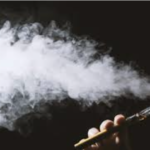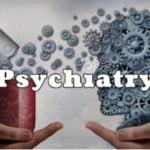Part 2: Taking Back Control
Welcome to Trauma. Yes, You. It’s time to build a new mental game.
I’m going to share some of the mental skills I’ve used through the years to help athletes to win Super Bowls and Stanley Cups, and high performers to conquer unimagined hurdles.
First, we recognize that bad stuff is going to happen. No one is exempt. How we deal with it is what separates the triumphant from the damaged. It requires a strong mind built through actual mental work. In developing our minds, we can permanently rewire our brains to overcome emotional, cognitive and even ethical challenges. Much like athletes training their bodies or scholars expanding their knowledge, the way our brains function can be altered to better support our functioning in this world.
Your job now is to move beyond survival reflex and think of the greater good, the better choice.
Never is this more important that right now, under the pandemic siege. The stress of these times is creating a chemical reaction in our bodies that pushes us to react, often in ways we would not choose in less challenging times. You bark at your spouse or kids, you resent your coworkers, even things that usually bring you joy are sources of annoyance. What you are experiencing is the reaction to trauma. If not addressed, it will wire itself into your system in the form of PTSD and leave you with ongoing emotional issues.
What’s happening? Your frontal cortex is being sidelined by your ‘fight or flight’ response. We need to get you back in control of your behavior and your emotions. Your job now is to calm your brain and body enough to allow your frontal cortex to participate once again. To move from reaction to decision. To move beyond survival reflex and think of the greater good, the better choice.
Professor Jon Kabat-Zinn of the University of Massachusetts Medical Center introduced Mindfulness-Based Stress Reduction (MBSR) to the world nearly 30 years ago. He said of mindfulness and meditation, “Practice as if your life, and the lives of others, depends on it. Because it does.” You can’t think your way into calmness. You can’t will your frontal cortex back into action.
Our task is to replace reaction with observation and decision, and that requires calm. How do we go from stress or panic in our mind to a state of calm? Return to your body. This exercise in breath training is from Dr. Patrick McKeown PhD. This is a foundational practice that will allow you to initiate the next steps in mindfulness and meditation. This is not a ‘one and done’ activity – rather must be practiced in all conditions and states through each day.
Your Breath Practice
- Take a relaxed position laying down or sitting back to elongate your body.
- Place one hand on your diaphragm.
- Place your tongue on the roof of your mouth against the back of your top teeth.
- Breathe in slowly through your nose for a count of 4, pushing your hand up as your diaphragm fills with air.
- Hold for a count of 2.
- Exhale slowly through your nose for a count of 4.
- Focus your attention on your breath and the rhythm of counting.
- After a few sets, continue your breathing while bringing your awareness to the muscle tension in your forehead, jaw, neck, shoulders, chest, arms, hands, legs and feet.
- Let your tension escape with your exhalation.
- Do this repeatedly throughout the day, and particularly when you begin to feel anxious or heavy or burdened.
This is fairly simple but not easy. It is a powerful tool to settle your nervous system and begin your self-awareness. And it is a first step in regaining control of your mind and body. Continue reading for “Part 3: Your 10 Step Plan” for more tools to address pandemic induced anxiety and trauma.
We are all vulnerable and potentially helpless in the face of nature’s ravages - floods, hurricanes and our most recent Coronavirus. Know there will be others to come. This is the best time for you to build new skills – a new mental game. Through this, if we preserve our best qualities, especially our hope and strength, we can do more than survive. We can conquer the conditions nature presents to us.








